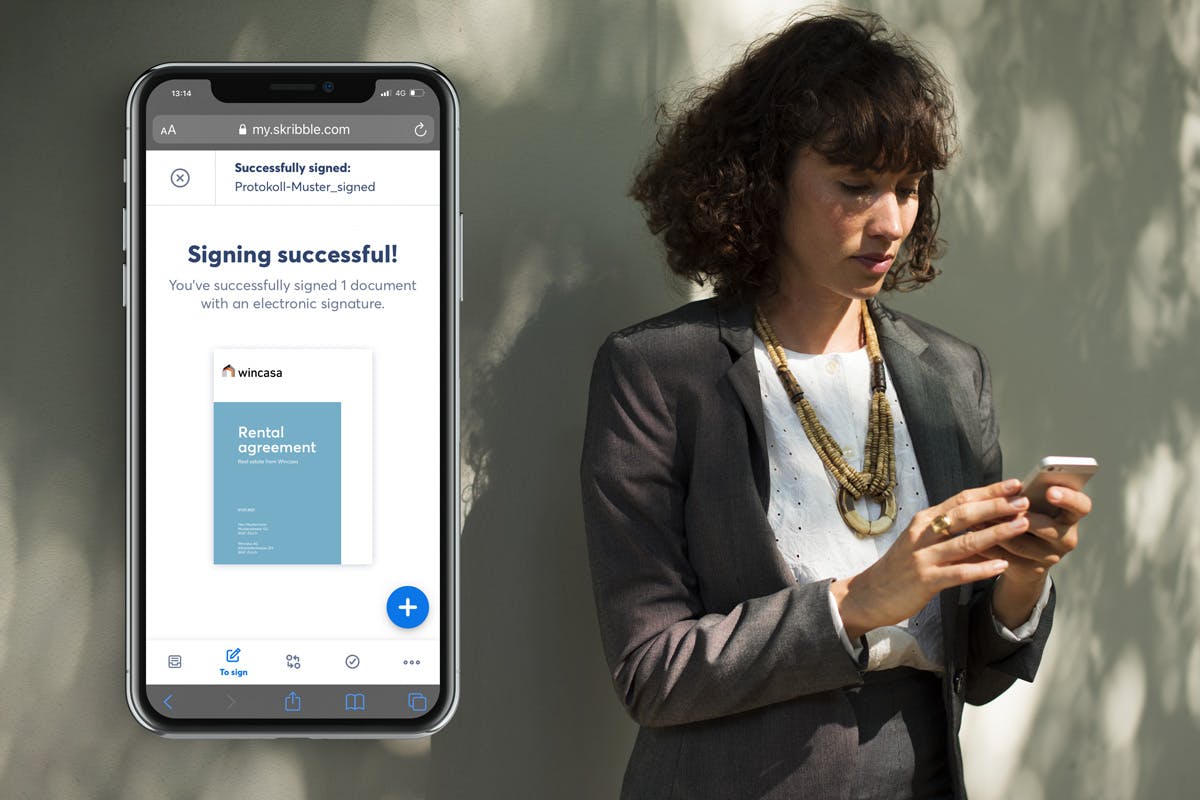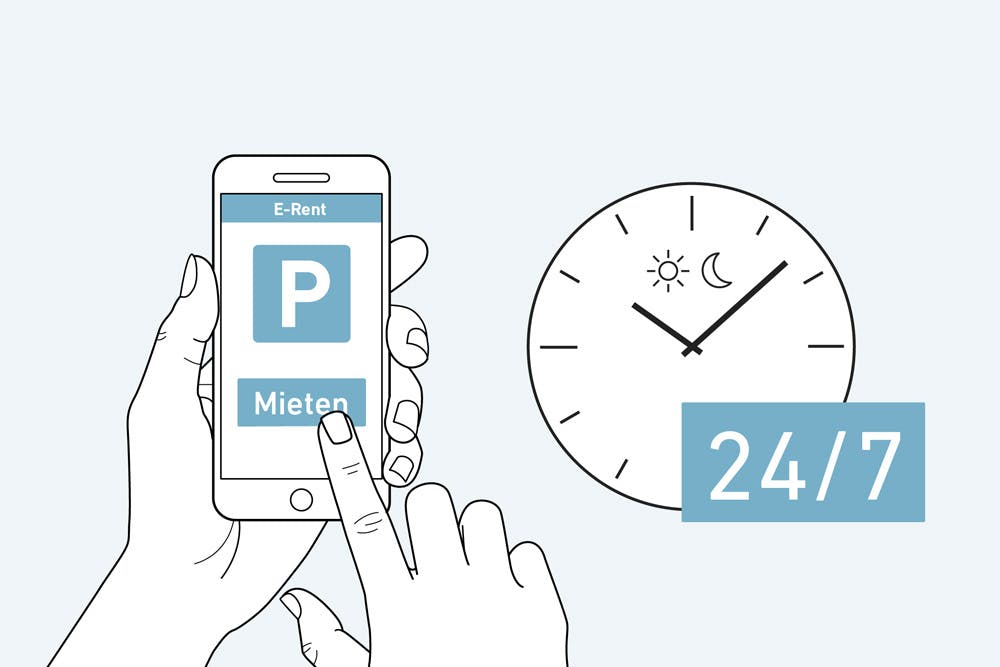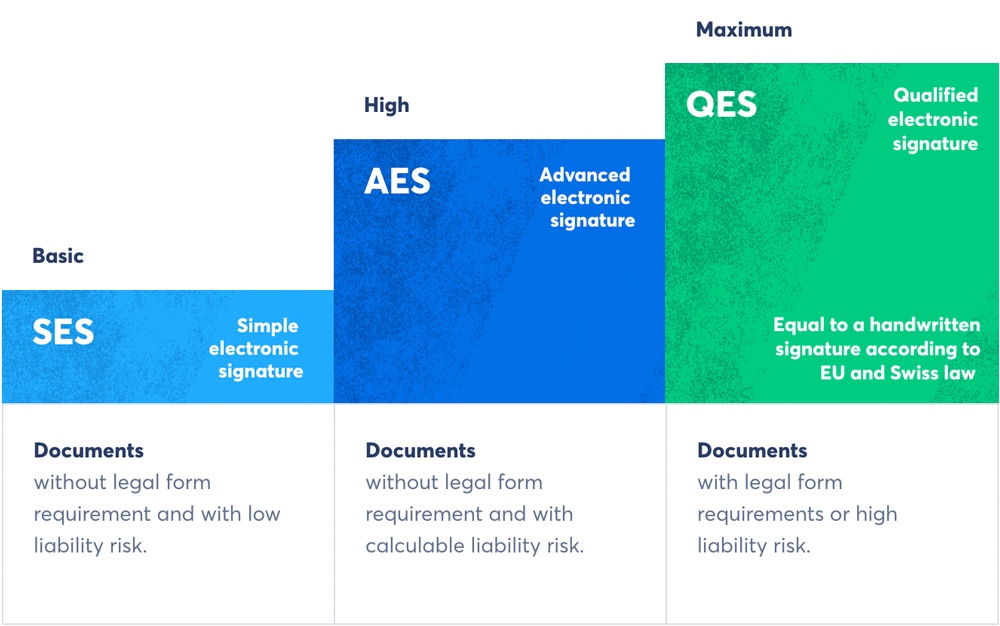How Wincasa is digitalising its rental process thanks to e-signatures

Digitalisation is a hot topic in real estate management, as it is elsewhere. Yet the usual rental process for rooms and parking spaces has still not been digitalised – partly because of complex legal requirements and the need for the renter’s signature. With E-Rent, Wincasa has launched onto the market an innovative tool that fully digitalises and automates outdoor parking space rental. The tool is currently being expanded to other types of rental spaces.
Marco Kissling is Head of Business & Digital Excellence at Wincasa. Today he is going to answer a few of our questions about E-Rent and the digitalisation of rental processes. Mr Kissling, thank you for taking the time to speak to us today.
It’s a pleasure.
Were digital signatures new territory for you?
No. I had already encountered electronic signatures (in cryptography, for example) while studying for my degree. I used an electronic signature (QES) for the first time in 2011 with my then employer. In practice, I started to pay attention to electronic signatures in the real estate industry and the associated opportunities about four years ago, so quite a while before I came to Wincasa.
I had already been thinking about the concept of a digital rental contract. At the time though, the technology wasn’t there yet and there was no suitable e-signature on the market that could really have been used. The first-generation electronic signatures were all expensive, too cumbersome for seamless integration, and generally not suited for a simple and elegant process.

So you’ve been following developments on the e-signature market for a while?
Yes, I was familiar with the legal requirements, the technology, the applications and the most important players. I was also there at Zurich’s Trust Square in March 2019 when Skribble launched the e-signature platform. I moved to Wincasa in September of that year. Wincasa had already done good work in digital application management thanks to a young and talented team, so together we were able to develop the entire E-Rent concept, including the digital rental contract, in just a few weeks.
Soon after, we got the assignment from management to implement the concept as a pilot project. For about half a year now, we’ve been offering rentals of (initially) outdoor parking spaces from the portfolio of Swiss Prime Anlagestiftung throughout Switzerland. It’s completely digital and fully automated. We were the first on the market with this service.
That’s really exciting. Can you tell us a little more about E-Rent?
The paper-heavy, analogue process for renting space is behind the times. Outdoor parking spaces are a good pilot because they are relatively standardised when it comes to size and contract elements. Skribble provided the required element of an integrated e-signature, which was an important contribution to implementing our vision. The digital signing of the rental contract on a smartphone replaces the handwritten signature that was previously required.

Which e-signature standard does E-Rent use?
For E-Rent, we use the advanced electronic signature (AES) because it offers greater freedom of form. It has high legal weight and applicants can easily be identified using a Swiss mobile phone number.
The interface to Skribble was integrated using an API. So there’s no extra cost for applicants and they don’t have to create a Skribble account. Wincasa signs the rental contract using an organisational seal in the name of Wincasa AG, which replaces management signatures. This means our renters and the managers can always check that the rental contract is really from Wincasa and whether it has been changed since it was created. This will help distinguish originals from fakes as the number of digital rental contracts grows. From a technical perspective, our digital rental contract is similar to the digital immunisation card.
Did you consider any other vendors? Why did you choose Skribble?
Of course we looked at a variety of vendors. But as I already said, I’d already familiarised myself with the material and the available solutions on the market beforehand. That helped when defining our needs and finding the right solution and the right partner for our project.
Skribble just had the best match for our needs, with respect to both price and technology. It was clear that for E-Rent we needed an advanced electronic signature (AES) with simple identification via telecommunications providers to make things as easy as possible for applicants.
While there is no widely available e-ID, a QES isn’t the right tool for this project. Only Skribble was offering an AES with identification via mobile phone number.

How did you experience your interactions with Skribble?
I found collaboration with Skribble to be very pleasant and competent. Our conversations always took place on an equal footing. Our contacts were always available and gave solid answers to our questions. That was another strong argument for Skribble.
Did you have any reservations because Skribble was still so new to the market at the time?
Of course we thought about all those considerations.
But since Skribble had a strong partner in the background with Swisscom, we felt pretty secure. The impressive growth Skribble has undergone since then and the constant improvement in its solution has shown we made the right decision. We remain completely satisfied with our choice. We also help Skribble as partners in the continued development of the solution from a customer perspective.
Are you planning to expand E-Rent to other types of rental spaces?
Yes, we are already working on expanding the concept to hobby spaces. Like parking, they’re considered ancillary rental properties. That makes the digitalisation process somewhat easier. Rented flats are more complex, since we have to pay attention to sociographic data for these properties. For example, you have to ensure that an interested party is free to choose whether they want to apply for a flat by digital or analogue means.
So complete digitalisation and automation isn’t so easy for residential property. For that reason, we’re trying to work with incentives – to motivate people to submit a digital application. We always try to put ourselves in a potential tenant’s shoes.
Does Wincasa use the e-signature for any other applications aside from E-Rent?
Yes, we use Skribble a great deal in HR in particular. HR is effectively our digital trailblazer. Although for that, we use whenever appropriate and possible the qualified electronic signature (QES) via browser. Read more about this in the separate interview with Daniel Joost, our Head of HR Consulting & Recruitment. It will appear here on the Skribble blog in a few weeks time.
Many thanks to Marco Kissling for this exciting insight into the world of digital rental agreements.

